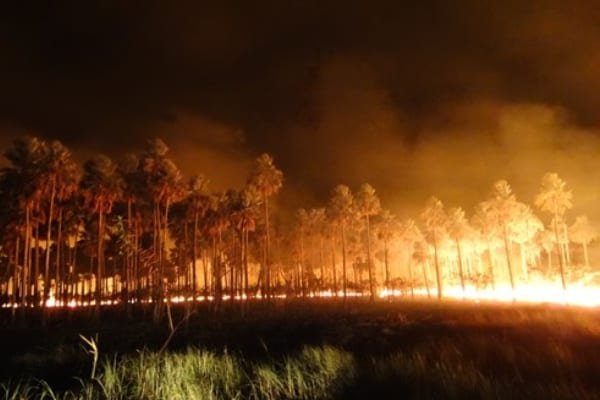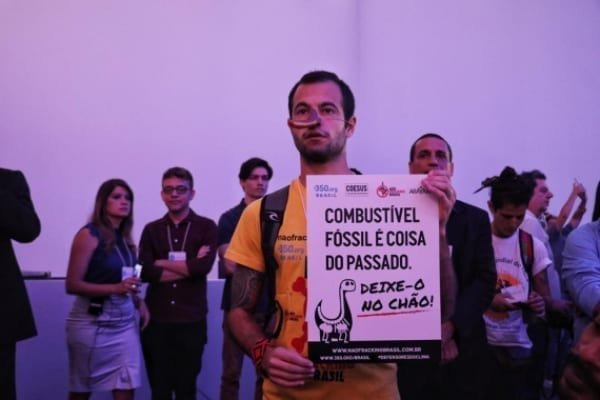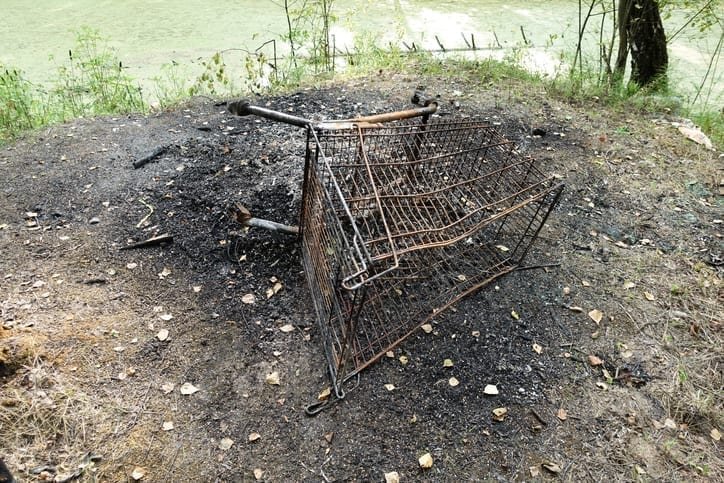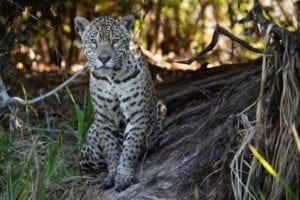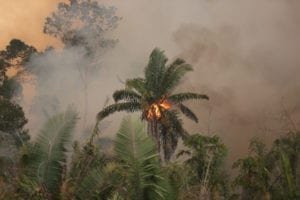In tropical forest landscapes, like the Amazon, fire is not natural but caused by human activities, exacerbated by climate change which leaves them drier and hotter – meaning action is key.
In its report with BCG, WWF warns that humans are responsible for 75% of all wildfires. In total, fires release roughly as much CO2 into the atmosphere as EU countries emit every year.
Climate change and fires
Climate change and wildfires reinforce each other, and the fires burning today in many parts of the world are bigger, more intense and last longer than before.
In Australia, for example, the 2019-20 fire season was the worst ever, with one-fifth of all trees destroyed.
Tropical forests, such as those in the Amazon, have the highest carbon storage (or sequestration) capacity, storing 23% of the world’s total – but they are not very resilient to fires.
As a result, tropical forest fires produce 15% of total greenhouse gas emissions from fires each year, despite making up only 7% of the surface area burned globally.
‘The feeling is that in 2020 there may be more fires than in previous years. We just completed a monitoring activity and discovered several deforested areas within the Uru-eu-wau-wau Indigenous Land, which are likely to be burned soon.
‘We found deforested areas four kilometres from the village. It is very close. Fire poses many problems for indigenous peoples, such as scaring off hunting and affecting our health. As we have low immunity, fires also aggravate respiratory problems, mainly affecting isolated people, who are much more vulnerable. It brings us enormous concern…
‘I am a young indigenous leader, and it was very painful to see the sadness of the older relatives because of this threatening situation. I want the whole world to know what indigenous peoples are facing in the Amazon.’
BITATÉ URU-EU-WAU-WAU
President of the Uru-eu-wau-wau Indigenous People’s Association
Deforestation in UK supply chains
This week (25 August), the UK government launched a consultation on new laws to tackle deforestation in UK supply chains as part of the Environment Bill.
This could be a critical first step towards protecting the Amazon rainforest and other precious landscapes.
It is essential that this new law ensures no more natural habitat is lost around the world through the food and other products we import.
 Play Video about This Rock Might Just Save The World
Play Video about This Rock Might Just Save The World Play Video about Play 2 hours of rock
Play Video about Play 2 hours of rock Play Video about Play 2 hours of brook
Play Video about Play 2 hours of brook Play Video about Play 2 hours of sheep
Play Video about Play 2 hours of sheep

















